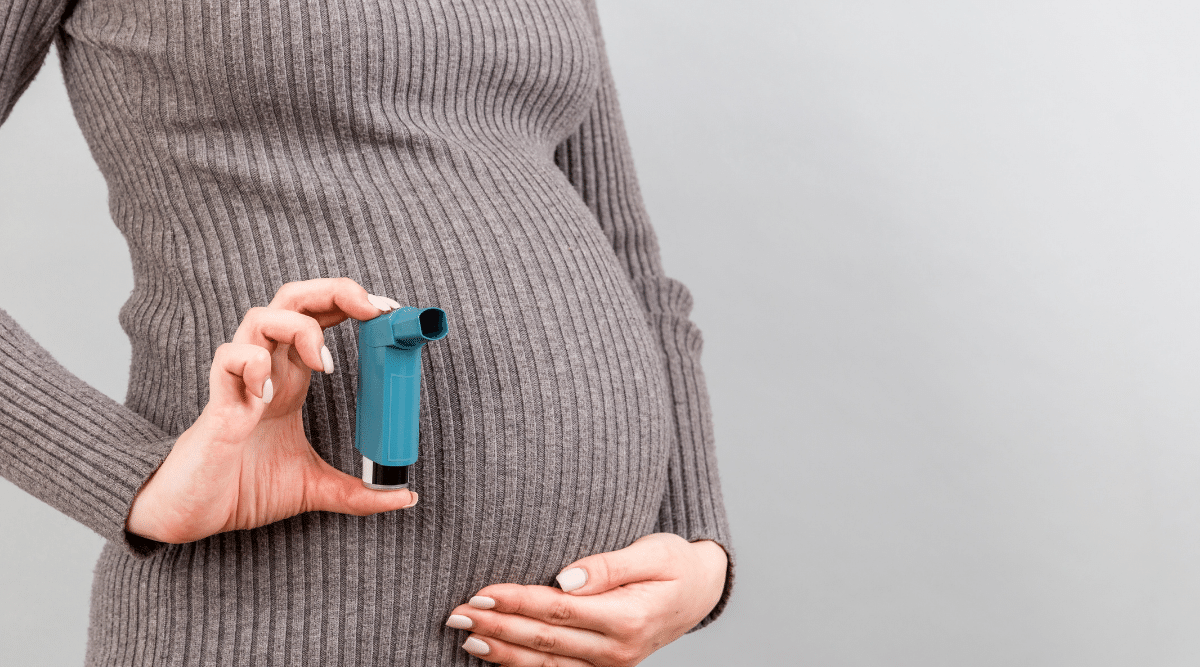
The good news for pregnant women with asthma is that if it is well controlled, risks are no more significant than for women without asthma. The bad news is women with asthma often stop taking their medications because they are worried about the effect these could have on the baby, and as a result, they experience worsening symptoms. So concerned are health professionals with the potential health problems to mothers and their unborn babies. The Asthma Foundation NSW has developed an ‘Asthma and Pregnancy Project’, which aims to provide clear advice to pregnant women with asthma and the health professionals who support them during their pregnancy.
Will asthma medications harm my baby?
 Most asthma medications are quite safe in pregnancy. Not taking your medication during pregnancy increases the chance of severe asthma attacks and puts your unborn baby at increased risk. It is essential to see the doctor managing your asthma early in pregnancy so they can make a safe asthma action plan for you.
Most asthma medications are quite safe in pregnancy. Not taking your medication during pregnancy increases the chance of severe asthma attacks and puts your unborn baby at increased risk. It is essential to see the doctor managing your asthma early in pregnancy so they can make a safe asthma action plan for you.
Remember, your baby relies on you for its oxygen. We know that babies born to women with asthma have a higher chance of being small at birth and being born pre-term. If asthma is not well controlled, the mother and baby will not get enough oxygen. These problems are more common in women whose asthma is severe or who have serious asthma attacks when pregnant. When asthma is well controlled, the risks are no higher than for women without asthma.
The reality is that some medications used to treat severe asthma attacks are more likely to be harmful to your baby than those used to prevent attacks. If you have an asthma attack, most medications are safer for your baby than an attack.
Does asthma get worse during pregnancy?
Around half of the Australian women with asthma experience a temporary worsening of their asthma when pregnant. However, the risk of a serious asthma attack is higher for women who stop taking their usual medications. It is also possible for asthma to recur during pregnancy with a history of asthma, such as in childhood, but this is not common. Asthma can worsen during pregnancy, but problems are most likely to occur between 17 and 36 weeks. Women need to contact their doctor immediately if they feel their asthma worsens. Infections, such as a cold, can cause the symptoms to worsen, so women need to follow the plan (made for them) and seek help early. If asthma has worsened during the pregnancy, it usually settles back to normal three months after the birth.
 How can I avoid asthma attacks?
How can I avoid asthma attacks?
- Keep taking your asthma medication
- Have regular check-ups for your asthma and tell the doctor if your symptoms get worse
- Make sure you have an asthma action plan and follow it closely
- Avoid smoking or breathing other people’s smoke as this can worsen your asthma and increase the risk of your baby having asthma, respiratory infections and sudden infant death syndrome (SIDs)
- Avoid things that trigger off your asthma
Will my baby get asthma?
Having a family history of asthma increases your baby’s risk of having asthma. You can reduce this risk by making sure they avoid tobacco smoke and are breastfed.
Page published on 19th January 2022
For more information about asthma and pregnancy, call the Asthma Information Line on 1800 645 130 or visit https://www.nationalasthma.org.au/living-with-asthma/resources/patients-carers/factsheets/pregnancy-and-asthma


Recent Comments